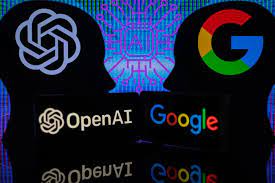On how Internet search has progressed from Google to ChatGPT, PFS Funds executives give the following summary.
Google was founded in 1998 with a unique vision. Instead of trying to manually cull the Internet and use simplistic word searches, as existing search engines tried to do, why not let behavior do the sorting?
Specifically, Google would evaluate a site based on how many other sites link to it.
If many sites thought a specific page was interesting, that was a powerful vote of confidence toward the site.
In addition, while attempts to organize the Internet by brute force became more difficult as pages proliferated, Google became more accurate and efficient. In a short time, it conquered the search market.
Search is special from an advertising perspective in the sense that someone performing a search is, by definition, looking for an answer that an advertiser can provide.
A viewer sitting at home watching a soccer game may or may not be interested in beer and may or may not remember the commercial at some later point when faced with a purchase decision; someone searching for beer on Google is interested and interested right now.
Internet Search
For the past quarter century, Google’s basic search approach has been superior, and no one has managed to beat Google with its tools.
In November 2022, a company called OpenAI launched ChatGPT, the first of what will surely be many «large language models» (LLMs) that attempt to handle queries differently.
LLMs crawl their training data basically all over the Internet and try to use machine learning to identify relationships. They don’t look at links, they look at the content itself.
ChatGPT
Journalists immediately published claims that ChatGPT can pass medical licensing boards, pass graduate exams, etc. And it’s certainly true that if given a question that can give a concrete answer, ChatGPT will find it and answer it with confidence, as long as Google links to a source.
Here are two comparisons of Google and ChatGPT search results: when we asked for «causes of WWI».
Google returned a callout box with text from the Indiana Department of Education and a link to the 31-page source document. For people who may find this a bit limiting (pages 13 through 31 focus on «Hoosier Stories» of Indiana residents’ experiences), the next four links are History.com, Wikipedia, Norwich University, and Britannica.
ChatGPT returned a paragraph citing «nationalist tensions, imperialism and alliances between different countries» and attributing the proximate cause to the assassination of Archduke Ferdinand.
Incidentally, this is very similar to the Indiana Department of Energy’s summary.

